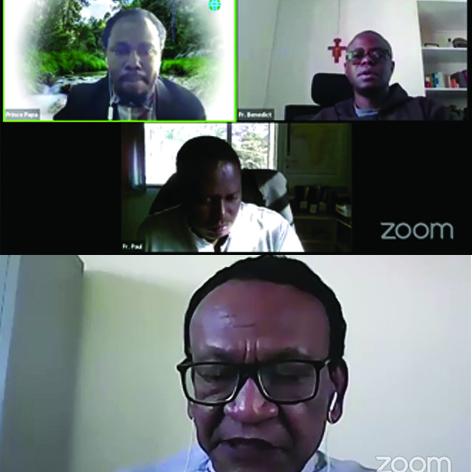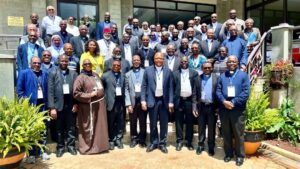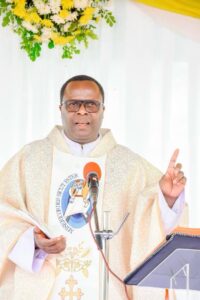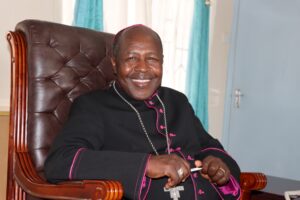SECAM: Church in Africa Must Be in the Forefront in Implementing Laudato Si Action Platform

Laudato Si' Action Platform Webinar
Sr. Jecinter Antoinette Okoth, FSSA
As the Church embarks on a seven-year journey towards integral ecology after the Vatican’s launch of Laudato Si’ Action Platform, clerics from the African continent have emphasized the significance of the Church taking lead in the realization of the project.
“The Church must be at the forefront,” the second Deputy Secretary General of the Symposium of Episcopal Conferences of Africa and Madagascar (SECAM) Fr. Jean Germain Rajoelison said, while addressing participants from Africa and other continents across the globe during a Webinar session conducted Wednesday, May 26.
He noted that the people need to understand the mission of the Church in the world and the link between evangelization and development, integral human development and integral society and the role of the Church in implementing the Laudato Si Action Platform.
According to the SECAM Deputy Secretary General in-charge of Justice, peace and development commission, the Church must play the coordinating role, a task she already holds through the Dicastery for Promoting Integral Human Development.
“Each bishops’ Conference must ensure this coordination in order to create a synergy within the local church so as to achieve communion with the universal Church,” Fr. Germain explained.
He continued and disclose that the Church must also create awareness about Laudato Si’, making the people aware of the Pope’s teaching in today’s world which is marked by relativism and religious indifference.
“Such awareness will help the people of God on the continent to know the dangers that threaten the earth and take action to adopt a responsible attitude in social life and in everyday life, and in our relationship with nature and the environment,” SECAM representative narrated.
Putting emphasis on the role of formation, the cleric hopes that seminaries and religious houses of formation are being educated to be responsible in the protection of the poor and the environment.
He emphasized on the role of pastoral coordination in every diocese highlighting that “Church leaders have to think and reflect and interpret how to integrate the objectives from the Dicastery of Promoting Integral Human Development into the Diocesan pastoral work.”
Speaking during the same event which was organized by the Global Catholic Climate Movement (GCCM) Africa in collaboration with the Association of Member Episcopal Conferences in Eastern Africa (AMECEA) and SECAM, the GCCM Program Manager for Africa Fr. Benedict Ayodi highlights that the Laudato Si’ goals aim to guide “our actions, redefine and rebuild our relationship with each other and our common home and calls for a spiritual and cultural revolution to realize integral ecology.”
 Response to the cry of the earth and the cry of the poor are some of the Laudato Si’ goals that need to guide our action, Fr. Ayodi said and explained, “Responding to the cry of the earth is a call to protect our common home for the wellbeing of all, as we equitably address the climate crisis, biodiversity loss, and ecological sustainability.”
Response to the cry of the earth and the cry of the poor are some of the Laudato Si’ goals that need to guide our action, Fr. Ayodi said and explained, “Responding to the cry of the earth is a call to protect our common home for the wellbeing of all, as we equitably address the climate crisis, biodiversity loss, and ecological sustainability.”
Fr. Ayodi who is based in Kenya as GCCM manager underscored that ecological economics and adoption of sustainable lifestyles are some other goals to guide Laudato Si’ Action Platform. “Ecological economics acknowledges that the economy is a sub-system of human society, which itself is embedded within the biosphere–our common home while adoption of sustainable lifestyles is grounded in the idea of sufficiency, and promoting sobriety in the use of resources and energy.
On his part, AMECEA Coordinator for the Department of Promoting Integral Human Development Fr. Paul Mung’athia Igweta shared with the online participants the pastoral impacts of Laudato Si’ noting that “Caring for our common home is our original vocation and the very first commandment given to humanity.”


